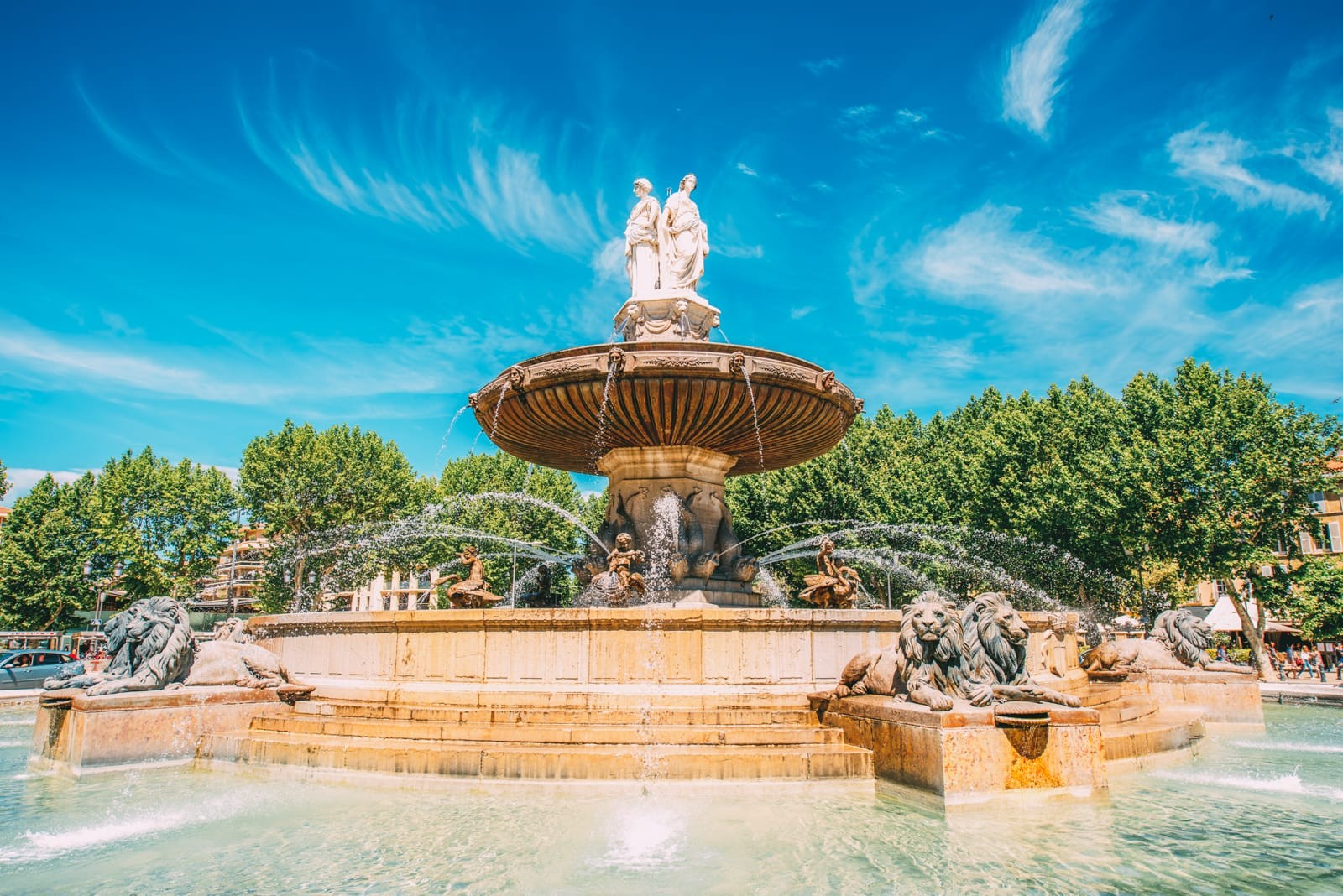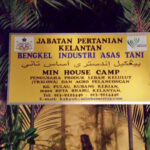Is Italy Safe To Travel? Absolutely! Italy is generally a safe country for tourists, and SIXT.VN can help you navigate it with ease. This comprehensive guide will provide you with essential safety information to ensure a worry-free and enjoyable trip, including advice on avoiding scams and petty theft. With proper preparation and awareness, your Italian adventure will be one to remember for all the right reasons.
1. Understanding Italy’s Overall Safety
Yes, Italy is generally a safe country for tourists. However, like any popular travel destination, it has its share of safety concerns. According to the Global Peace Index, Italy consistently ranks among the safer countries in the world. This means that violent crime is relatively low, and the biggest risks to travelers are typically petty theft and scams. But don’t let these concerns deter you, with some basic precautions and a bit of common sense, you can easily avoid these issues and have a wonderful time exploring all that Italy has to offer.
1.1 Crime Rates and Tourist Hotspots
Petty crime, such as pickpocketing and bag snatching, is the most common issue in tourist hotspots.
| Crime Type | Prevalence | Common Locations | Prevention Tips |
|---|---|---|---|
| Pickpocketing | Frequent in crowded areas | Public transport, tourist attractions, markets | Keep valuables secure, use a money belt, be aware of surroundings |
| Bag Snatching | Common, especially in cities | Streets, cafes, public transport | Keep bags close, avoid displaying valuables, be cautious of scooters |
| Vehicle Theft | Occurs, particularly rental cars | Parking lots, streets | Park in well-lit areas, use anti-theft devices, never leave valuables in the car |
| Credit Card Fraud | Risk of skimming at ATMs | Tourist areas | Use ATMs inside banks, cover PIN when entering, check for unusual features on card readers |
| Scams | Various types targeting tourists | Tourist attractions, train stations | Be wary of unsolicited offers, avoid signing contracts without understanding them, use official taxi services |
| Sexual Assault | Occurs, though less common | Nightlife areas, isolated places | Be aware of surroundings, avoid walking alone at night, do not accept drinks from strangers |
| Home Break-Ins | Occur, including vacation rentals | Residential areas | Ensure doors and windows are locked, use security systems if available, inform neighbors of absence |
| Cybercrime | Increasing, particularly on public Wi-Fi | Public Wi-Fi hotspots | Use secure Wi-Fi networks, avoid sharing personal information, use a VPN |
| Demonstrations | Can occur, sometimes turning violent | City centers, public squares | Avoid areas of demonstrations, monitor local media, follow instructions of authorities |
| Natural Disasters | Earthquakes, volcanoes, floods, wildfires | Specific regions (e.g., seismic zones, near volcanoes, flood-prone areas) | Monitor local weather reports, heed warnings from authorities, be aware of emergency procedures |
1.2 Terrorism Threat Level
While Italy hasn’t experienced a major terrorist attack in recent years, the threat of terrorism remains a concern throughout Europe. According to Europol, terrorist groups continue to pose a risk, and attacks can’t be ruled out. However, the Italian government maintains a high level of vigilance and has implemented security measures to protect against potential threats. Tourists should be aware of their surroundings and report any suspicious activity to the authorities.
2. Essential Safety Tips for Traveling in Italy
To ensure a safe and enjoyable trip to Italy, consider these essential safety tips, especially in crowded tourist spots:
2.1 Protecting Your Belongings
- Be vigilant: Keep a close watch on your belongings, especially in crowded areas.
- Use secure bags: Opt for bags with zippers or closures that are difficult for thieves to open.
- Money belts: Consider using a money belt or a hidden pouch to store cash and important documents.
- Avoid displaying wealth: Refrain from wearing expensive jewelry or flashing large amounts of cash.
2.2 Staying Safe on Public Transportation
- Be aware of your surroundings: Pay attention to who is around you and be cautious of anyone acting suspiciously.
- Secure your belongings: Keep your bags close to you and avoid placing them on the floor or overhead compartments.
- Avoid distractions: Don’t get distracted by your phone or other devices, as this can make you an easier target for thieves.
2.3 Avoiding Scams and Tourist Traps
- Be wary of unsolicited offers: Be cautious of anyone offering you assistance, goods, or services, especially if they approach you aggressively.
- Verify information: Double-check prices and information before agreeing to anything, especially in tourist areas.
- Use official services: Stick to official taxi stands and tour operators to avoid being scammed.
2.4 Road Safety and Driving Tips
- Be aware of local driving habits: Italian drivers can be aggressive, so be prepared to drive defensively.
- Follow traffic laws: Obey speed limits and traffic signals, and be cautious of motorcycles and scooters.
- Park in secure areas: Park your car in well-lit and guarded parking lots to prevent theft.
- Limited Traffic Zones (ZTL): Be aware of ZTL areas in city centers, which require special permits.
2.5 Emergency Numbers and Contacts
- Emergency: 112
- Police (Polizia di Stato): 113
- Medical Emergency: 118
- Fire Department: 115
3. Staying Safe in Major Italian Cities
3.1 Rome
Rome is known for its historical sites and bustling streets. While generally safe, tourists should be aware of petty crime, especially around popular attractions like the Colosseum and the Vatican.
Safety Tips for Rome:
- Be cautious of pickpockets on public transportation, particularly on buses and the metro.
- Avoid walking alone in poorly lit areas at night.
- Be wary of street vendors selling counterfeit goods.
3.2 Florence
Florence is a beautiful city with a rich artistic heritage. However, it’s also a popular destination for pickpockets and scam artists.
Safety Tips for Florence:
- Keep your belongings close in crowded areas like the Uffizi Gallery and Ponte Vecchio.
- Be cautious of people offering to “help” you with your luggage or directions.
- Avoid leaving valuables unattended in your hotel room.
3.3 Venice
Venice is a unique city with its canals and gondolas. However, it’s also a target for petty crime, especially in crowded areas like St. Mark’s Square.
Safety Tips for Venice:
- Be cautious of pickpockets on vaporettos (water buses).
- Avoid walking alone in poorly lit areas at night.
- Be wary of people offering to sell you overpriced souvenirs.
- Be aware of “acqua alta” (high water) and take necessary precautions.
3.4 Milan
Milan is a fashion capital and a major business center. While generally safe, tourists should be aware of petty crime, especially around the train station and popular shopping areas.
Safety Tips for Milan:
- Be cautious of pickpockets on public transportation, particularly on the metro.
- Avoid walking alone in poorly lit areas at night.
- Be wary of people offering to sell you fake designer goods.
3.5 Naples
Naples is a vibrant city with a rich history and culture. However, it also has a reputation for being more dangerous than other Italian cities.
Safety Tips for Naples:
- Be cautious of your surroundings, especially in crowded areas.
- Avoid walking alone at night in poorly lit areas.
- Don’t display expensive jewelry or carry large amounts of cash.
- Be wary of scams, particularly involving fake police officers.
4. Natural Disasters and Environmental Awareness
4.1 Earthquakes
Italy is located in an active seismic zone, so earthquakes can occur.
- Be aware of earthquake safety procedures: Familiarize yourself with what to do in case of an earthquake.
- Monitor local news: Stay informed of any earthquake activity in the area.
4.2 Volcanoes
Italy has several active volcanoes, including Mount Etna in Sicily and Mount Vesuvius near Naples.
- Monitor volcanic activity: Stay informed of any volcanic activity in the area.
- Follow authorities’ instructions: Heed any warnings or evacuation orders issued by local authorities.
4.3 Flooding
Heavy rains can cause flooding, particularly in northern and central Italy.
- Stay informed of weather forecasts: Monitor local weather reports for any potential flooding.
- Avoid flood-prone areas: Be cautious around rivers and low-lying areas during heavy rains.
4.4 Wildfires
Forest and maquis fires can occur during the summer months, particularly in southern Italy.
- Be cautious of fire hazards: Avoid activities that could start a fire, such as discarding cigarettes improperly.
- Stay away from affected areas: If there is a wildfire in the area, stay away from the affected area and follow the instructions of local authorities.
5. Health and Medical Considerations
5.1 Vaccinations and Health Precautions
- Consult your doctor: Talk to your doctor about any necessary vaccinations or health precautions before traveling to Italy.
- Travel insurance: Make sure you have travel insurance that covers medical expenses.
- Medications: Bring any necessary medications with you, along with a copy of your prescription.
5.2 Food and Water Safety
- Drink bottled water: It’s generally safe to drink tap water in Italy, but bottled water is recommended, especially in rural areas.
- Eat at reputable establishments: Choose restaurants and cafes that appear clean and well-maintained.
- Be cautious of street food: Exercise caution when eating street food, as it may not be prepared to the same standards as restaurant food.
5.3 Medical Facilities and Services
- Good healthcare is available: Italy has a good healthcare system, with both public and private hospitals and clinics.
- Emergency medical care is free: Emergency medical care is free for everyone, regardless of nationality.
- Pharmacies are readily available: Pharmacies are readily available throughout Italy, and pharmacists can provide advice on minor ailments.
6. Legal and Cultural Considerations
6.1 Local Laws and Customs
- Respect local laws: Be aware of and respect local laws and customs.
- Dress modestly: Dress modestly when visiting religious sites.
- Learn some basic Italian phrases: Learning some basic Italian phrases can help you communicate with locals and show respect for their culture.
6.2 Drug Laws
- Strict penalties for drug offenses: Penalties for drug offenses are severe in Italy, so avoid using or possessing illegal drugs.
6.3 Public Conduct
- Be aware of public conduct rules: Some cities have strict rules about public conduct, such as sitting on monuments or eating in certain areas.
- Avoid public intoxication: Public intoxication is frowned upon and can result in a fine.
7. Utilizing SIXT.VN for a Safer Trip
7.1 Reliable Transportation Options
SIXT.VN offers reliable transportation options, including airport transfers and car rentals, to ensure you travel safely and comfortably.
7.2 Accommodation Assistance
SIXT.VN can assist you in finding safe and reputable accommodations that meet your needs and budget.
7.3 Guided Tours and Activities
SIXT.VN offers guided tours and activities that allow you to explore Italy with experienced and knowledgeable guides, ensuring your safety and enjoyment.
8. Preparing for Jubilee 2025
The Jubilee, also known as the Holy Year, will take place in Rome from December 24, 2024, to January 6, 2026. Expect large crowds and increased security measures.
8.1 Planning Accordingly
If you plan to travel to Rome during the Jubilee, plan accordingly:
- Book accommodations and transportation in advance: Due to the large number of visitors, it’s essential to book accommodations and transportation well in advance.
- Be prepared for crowds: Expect large crowds and long lines at popular attractions.
- Be aware of security measures: Be aware of increased security measures, such as bag checks and metal detectors.
8.2 Enhanced Safety Measures
During the Jubilee, especially during large events, you should expect:
- Large crowds and public gatherings: Be prepared for large crowds and public gatherings.
- Disruptions to traffic and movement: Expect disruptions to traffic and movement.
- An increased presence of security forces: Be aware of an increased presence of security forces.
9. Real-Life Safety Scenarios and Solutions
9.1 Scenario 1: Pickpocketing on a Crowded Bus
- Scenario: You’re riding a crowded bus in Rome when you notice someone trying to reach into your bag.
- Solution: Keep your bag close to you and be aware of your surroundings. If you feel threatened, move to a different part of the bus or get off at the next stop.
9.2 Scenario 2: Scam Attempt at a Tourist Attraction
- Scenario: You’re approached by someone offering to sell you a “skip-the-line” ticket to the Colosseum for an exorbitant price.
- Solution: Politely decline the offer and purchase tickets from official vendors or online.
9.3 Scenario 3: Lost or Stolen Passport
- Scenario: You realize your passport is missing after a day of sightseeing.
- Solution: Report the loss or theft to the nearest police station and contact your embassy or consulate for assistance.
10. Frequently Asked Questions (FAQs)
10.1 Is it safe to travel to Italy alone?
Yes, Italy is generally safe for solo travelers. However, it’s important to take precautions, such as avoiding walking alone at night and being aware of your surroundings.
10.2 What are the most common scams in Italy?
Common scams in Italy include pickpocketing, fake ticket sales, and overpriced souvenirs.
10.3 Is it safe to drink tap water in Italy?
Yes, it’s generally safe to drink tap water in Italy, but bottled water is recommended, especially in rural areas.
10.4 What should I do if I experience a medical emergency in Italy?
Call 118 for medical emergencies. Emergency medical care is free for everyone, regardless of nationality.
10.5 How can SIXT.VN help me stay safe in Italy?
SIXT.VN offers reliable transportation options, accommodation assistance, and guided tours to ensure your safety and comfort in Italy.
10.6 Is Italy safe from terrorism?
While the threat of terrorism exists, Italy maintains a high level of vigilance and has implemented security measures to protect against potential threats.
10.7 What should I do if I encounter a demonstration or protest?
Avoid areas where demonstrations are taking place and follow the instructions of local authorities.
10.8 Are there any areas in Italy that are particularly dangerous?
Some areas of Naples have a reputation for being more dangerous than other Italian cities, so it’s important to be cautious of your surroundings.
10.9 What is the emergency number in Italy?
The emergency number in Italy is 112.
10.10 How should I dress when visiting religious sites in Italy?
Dress modestly when visiting religious sites, covering your shoulders and knees.
Conclusion
Traveling to Italy can be an incredibly rewarding experience. By staying informed, taking necessary precautions, and utilizing services like SIXT.VN, you can ensure a safe and memorable trip. Remember to be aware of your surroundings, protect your belongings, and respect local laws and customs. With proper planning and awareness, you can enjoy all that Italy has to offer without compromising your safety.
Are you ready to experience the beauty and culture of Italy? Let SIXT.VN help you plan a safe and unforgettable journey. Contact us today to learn more about our services, including airport transfers, accommodation assistance, and guided tours. Your Italian adventure awaits!
Address: 260 Cau Giay, Hanoi, Vietnam
Hotline/Whatsapp: +84 986 244 358
Website: SIXT.VN
 Trevi Fountain in Rome
Trevi Fountain in Rome
Alt: Captivating canals of Venice, a major tourist destination, with gondolas gliding through the waterways, representing the romantic allure of the floating city.




